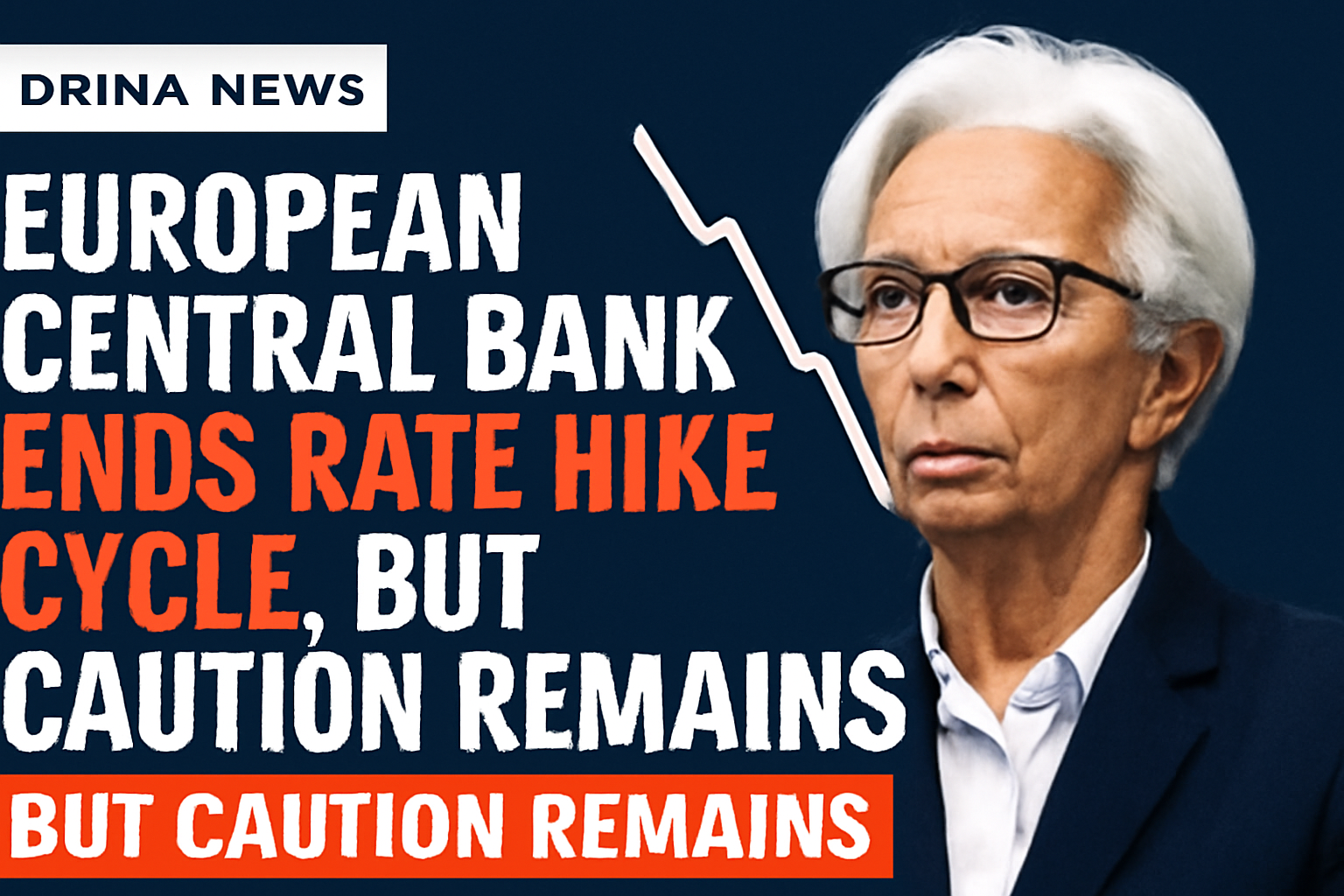The European Central Bank (ECB) has officially ended its latest cycle of interest rate hikes after inflation in the Eurozone dropped from a peak of 10% down to the target 2%. ECB’s Chief Economist, Philip Lane, announced at the annual forum in Sintra, Portugal, that the job of taming inflation is mostly done, but the bank remains cautious about potential new economic shocks.
Over the past year, the ECB raised its key interest rate from 2% to 4%, and has already started cutting it back down to 2%, with markets expecting another cut to 1.75% by year-end. Inflation in May stood at 1.9%, below the 2% target, marking a major success after the energy crisis and supply chain disruptions.
However, Lane warns against complacency as new shocks are already emerging that could alter the medium-term economic outlook. The ECB is closely monitoring energy markets, exchange rates, and inflation expectations to avoid overreacting to minor fluctuations, while also ensuring it doesn’t miss persistent factors that might require policy adjustments.
Belgium’s central bank governor, Pierre Wunsch, also highlighted that inflation risks are now mostly tilted to the downside, and there is broad consensus that the main job is done. He added that if needed, the ECB could further lower interest rates, though this is not actively planned.
On the flip side, ECB Vice-President Luis de Guindos warned about the problematic strengthening of the euro. The euro has surged nearly 14% against the US dollar this year and currently trades around $1.18. De Guindos said that any further rise above $1.20 could hurt Eurozone export competitiveness and complicate monetary easing. While the ECB does not target a specific exchange rate, it factors euro movements into its monetary decisions.
Europe is currently facing stagnating business activity and slow growth, with recovery possibly delayed due to global uncertainty. The ECB will continue to watch economic data, especially industrial production, and is ready to provide additional support if recovery falters.
So, while the rate hike cycle is over and inflation is under control, the ECB isn’t resting on its laurels. New shocks and a strengthening euro are red flags demanding attention. Will Europe manage to keep stability, or are new economic storms brewing? Time will tell, but one thing’s clear — this isn’t the end of the story on interest rates and inflation.
What do you think? Did the ECB end the rate hike cycle too soon, or is this a smart move? Drop a comment and let’s see who’s the real economist here, and who just likes to complain about coffee prices!









